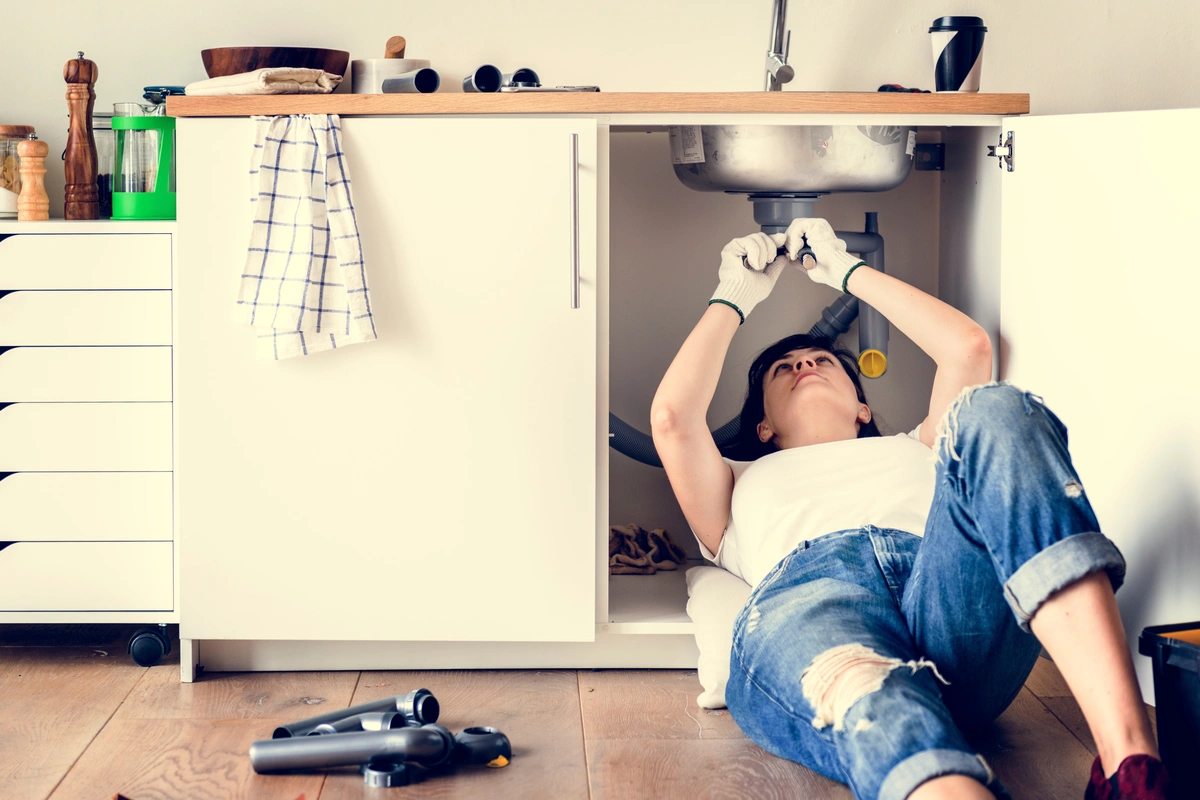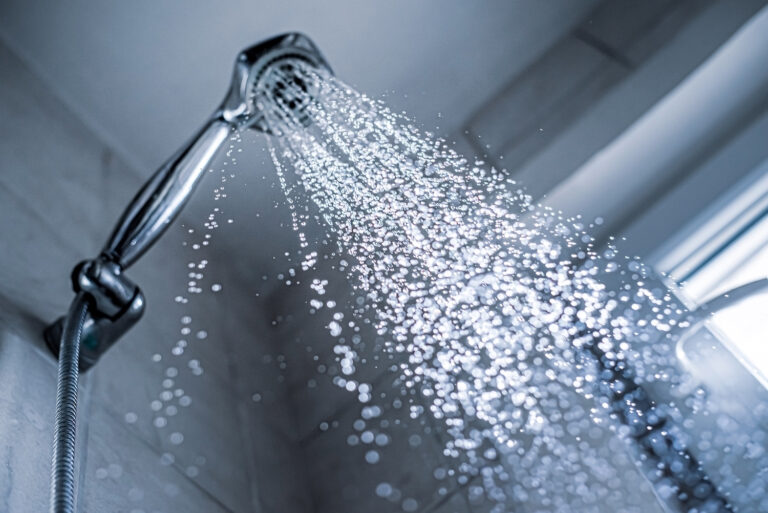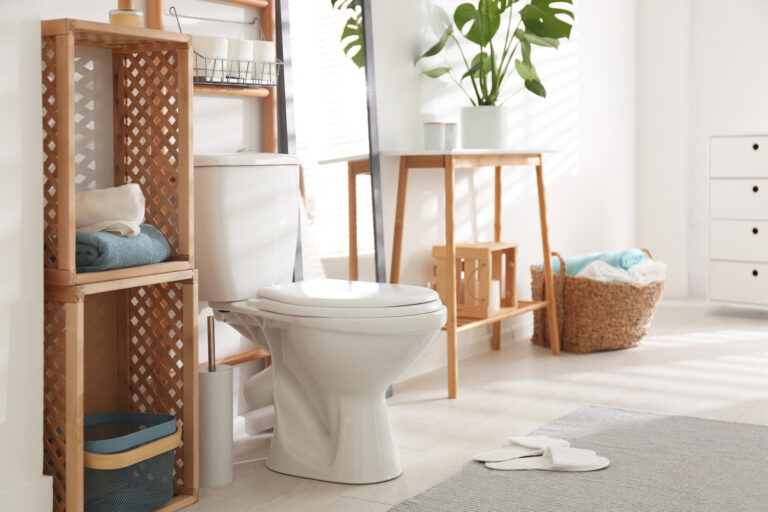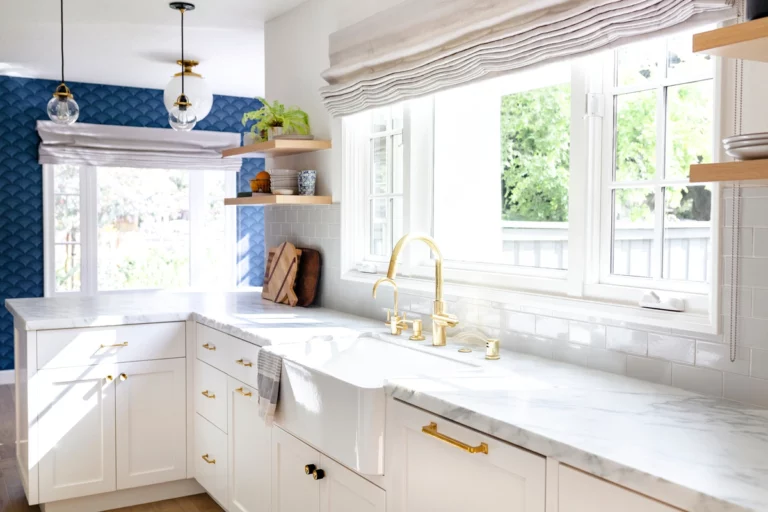DIY plumbing repairs can be a cost-effective solution to many common plumbing concerns. With the right tools and knowledge, homeowners can tackle simple plumbing repairs such as clogged toilets or leaky faucets. However, you must approach DIY plumbing cautiously and know when to call a professional plumber.
In this DIY plumbing guide, we’ll cover the essential do’s and don’ts for the DIY plumber. We’ll discuss the importance of having the right tools, turning off the shutoff valve, and avoiding chemical clog removers. We’ll also explain why you should never attempt to fix big plumbing issues without professional help, and why regular maintenance is crucial for preventing plumbing trouble.
Do’s for the DIY Plumber
Here are a few of the essential “Do’s” for DIY plumbers:
Have the Right Tools
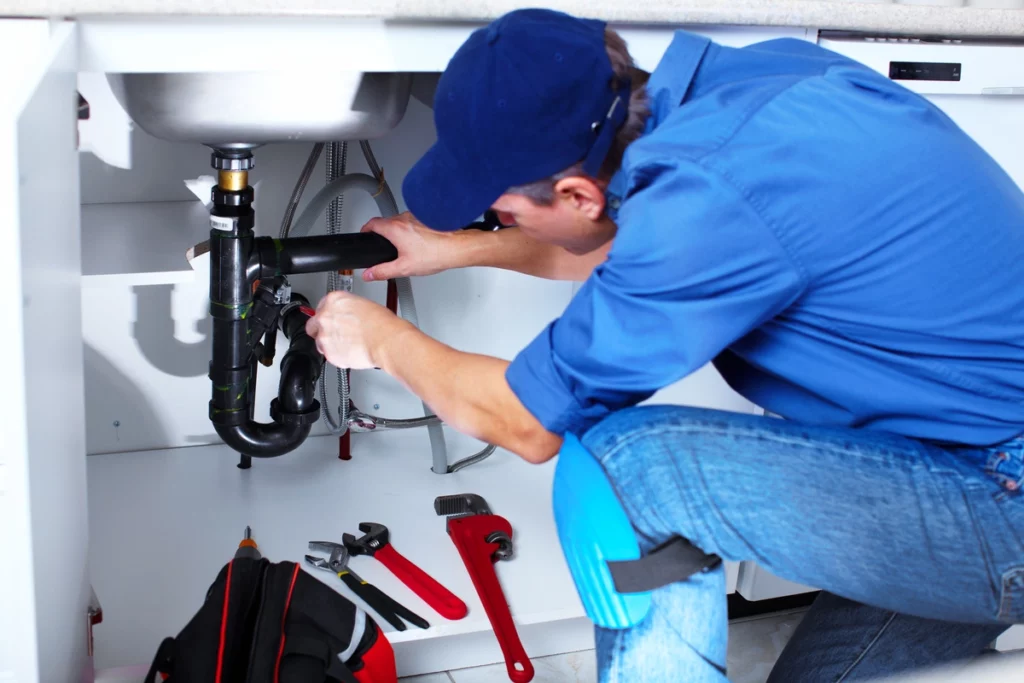
Before starting any plumbing project, make sure you have the necessary tools. You can find plumbing tools at your local hardware store.
Some essential tools that every DIY plumber should have include a pipe wrench, pliers, an adjustable wrench, a basin wrench, and a pair of channel locks. These tools will allow you to work on pipes and other plumbing fixtures more easily and effectively.
Turn off the Shutoff Valve
Ensure you turn off the shutoff valve before starting work. If you’re working on a plumbing system or drain lines, turning off the shutoff valve is critical to prevent water from flowing into the area you’re working on. This is especially important when working on a clogged toilet or sink.
Avoid Chemical Clog Removers
You should always avoid chemical clog removers. These chemicals may seem like an easy solution to unclogging drains, but they can damage your plumbing and harm the environment.
These chemicals can cause pipes to corrode, leading to leaks and other plumbing nightmares in the long run. It’s better to try alternative solutions, such as using a plunger or a plumbing snake, to remove clogs. Additionally, the chemicals in these cleaners can harm the environment when they enter the water supply. Instead, try using a plunger or a plumbing snake to remove clogs.
Test for Leaks
Once you’ve completed a repair or installation, test for leaks before closing up the wall or floor. This can prevent further damage and save you from a costly repair.
Know When To Call a Plumber
Sometimes, the best solution is simply to call a plumber. If you’re not comfortable with the repair process or if the procedure is too complicated, it’s best to give them a call and seek their advice. They have the tools, solutions, and expertise to solve any plumbing setback.
Don’ts for DIY Plumbers
Follow the below plumbing “Don’ts” if you’re doing any DIY plumbing work:
Ignore Plumbing Issues
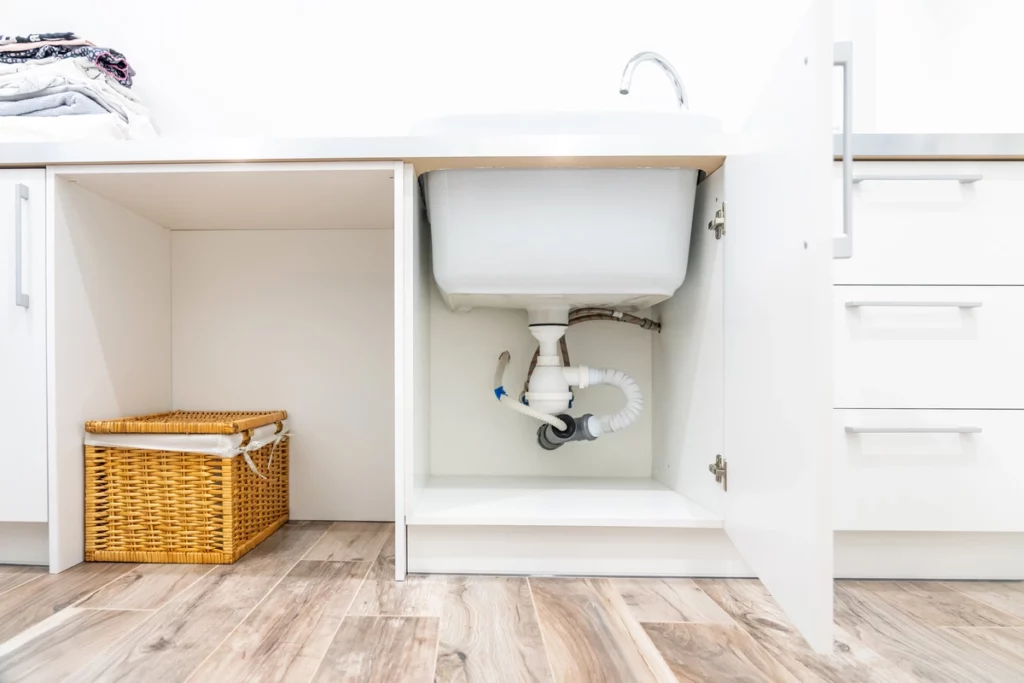
Ignoring plumbing issues is just as dangerous as not fixing them properly. If left untreated, a leaky faucet, a clogged toilet, or mineral deposits in your water heater can lead to damage. Small leaks, for example, can lead to water damage and mold growth if left unaddressed. It’s best to address plumbing concerns as soon as possible to prevent further damage and costly repairs.
Forget To Turn off the Water Heater
For your safety, it’s important to turn off the water heater. Before starting any repair process that involves heat, like fixing a leaky pipe, turn off the water heater to avoid any accidents.
Overtighten Connections
It’s essential not to overtighten connections when working on plumbing projects. Over-tightening can cause pipes and fittings to crack, leading to leaks and other plumbing complications. When making connections, use the appropriate force to tighten them securely, but avoid over-tightening.
Ignore Vent Pipes
Vent pipes are an essential part of your plumbing system, and it’s important not to ignore them. These pipes help regulate air pressure in your plumbing system, allowing waste to flow freely. If vent pipes become clogged or damaged, they can lead to slow draining. In addition, make sure to inspect and maintain your vent pipes regularly.
Attempt To Fix Big Issues
While homeowners can handle some simple plumbing repairs, big issues should always be left to professionals. Attempting to fix complex plumbing problems like a burst pipe or a broken sewer line without proper training or experience can result in even more damage, which can be costly and time-consuming to repair.
A burst pipe can cause water damage to your home and can even lead to the growth of mold, which can be hazardous to your health. In some cases, a burst pipe can also lead to an increase in your water bill, as well as a decrease in water pressure. Similarly, broken sewer lines can wreak havoc on a property, including sewage backup in your home. That may cause unpleasant smells, potential health hazards, and damage to your property.
It’s important to remember that plumbing professionals have the training, experience, and tools needed to fix big plumbing dilemmas safely and effectively. They have the knowledge and expertise to diagnose the problem correctly and apply the appropriate solution to get your plumbing working normally again.
Forget Regular Maintenance
Many homeowners neglect regular maintenance, assuming everything is working fine until they encounter a major plumbing issue. Of course, that often leads to costly repairs and inconvenience. Keep in mind just how useful regular maintenance can be. It prevents plumbing issues from developing in the first place. Check your toilets, sinks, and drains regularly for any signs of leaks or stoppages.
Look for water stains or mold growth around pipes, which may indicate a leak. If you notice anything that doesn’t seem right, address them promptly to avoid further damage.
DIY Plumbing Final Thoughts
DIY plumbing can save you money, but it’s important to be careful and follow the proper process. With access to the right tools and knowledge, you can tackle simple plumbing repairs like replacing a kitchen faucet or fixing a clogged toilet.
If you’re not confident, don’t hesitate to call a plumber. They can help with anything from installing new faucets to replacing pipes in your basement. As a homeowner, caring for your plumbing can save you money and give you peace of mind.

